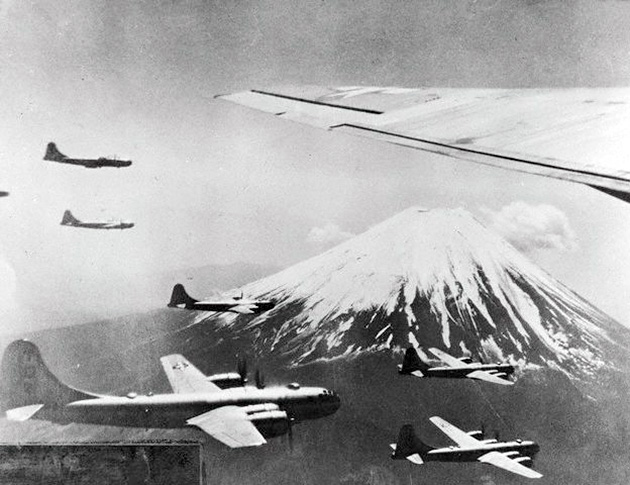
Firebombing of Tokyo on March 09, 1945
Firebombing of Tokyo: On this day, U.S. warplanes launch a new bombing offensive against Japan, dropping 2,000 tons of incendiary bombs on Tokyo over the course of the next 48 hours. Almost 16 square miles in and around the Japanese capital were incinerated, and between 80,000 and 130,000 Japanese civilians were killed in the worst single firestorm in recorded history.
Early on March 9, Air Force crews met on the Mariana Islands of Tinian and Saipan for a military briefing. They were planning a low-level bombing attack on Tokyo that would begin that evening, but with a twist: Their planes would be stripped of all guns except for the tail turret. The decrease in weight would increase the speed of each Superfortress bomber-and would also increase its bomb load capacity by 65 percent, making each plane able to carry more than seven tons.
Speed would be crucial, and the crews were warned that if they were shot down, all haste was to be made for the water, which would increase their chances of being picked up by American rescue crews. Should they land within Japanese territory, they could only expect the very worst treatment by civilians, as the mission that night was going to entail the deaths of tens of thousands of those very same civilians. “You’re going to deliver the biggest firecracker the Japanese have ever seen”, said U.S. General Curtis LeMay.
The cluster bombing of the downtown Tokyo suburb of Shitamachi had been approved only a few hours earlier. Shitamachi was composed of roughly 750,000 people living in cramped quarters in wooden-frame buildings. Setting ablaze this “paper city” was a kind of experiment in the effects of firebombing; it would also destroy the light industries, called “shadow factories”, that produced prefabricated war materials destined for Japanese aircraft factories.
The denizens of Shitamachi never had a chance of defending themselves. Their fire brigades were hopelessly undermanned, poorly trained, and poorly equipped. At 5:34 p.m., Superfortress B-29 bombers took off from Saipan and Tinian, reaching their target at 12:15 a.m. on March 10. Three hundred and thirty-four bombers, flying at a mere 500 feet, dropped their loads, creating a giant bonfire fanned by 30-knot winds that helped raze Shitamachi and spread the flames throughout Tokyo. Masses of panicked and terrified Japanese civilians scrambled to escape the inferno, most unsuccessfully. The human carnage was so great that the blood-red mists and stench of burning flesh that wafted up sickened the bomber pilots, forcing them to grab oxygen masks to keep from vomiting.
The raid lasted slightly longer than three hours. “In the black Sumida River, countless bodies were floating, clothed bodies, naked bodies, all black as charcoal. It was unreal,” recorded one doctor at the scene. Only 243 American airmen were lost-considered acceptable losses.
History Channel / Wikipedia / Encyclopedia Britannica / Daily Mail / Atomic Bomb Museum / Blog.NuclearSecrecy (Tokyo vs. Hiroshima) 
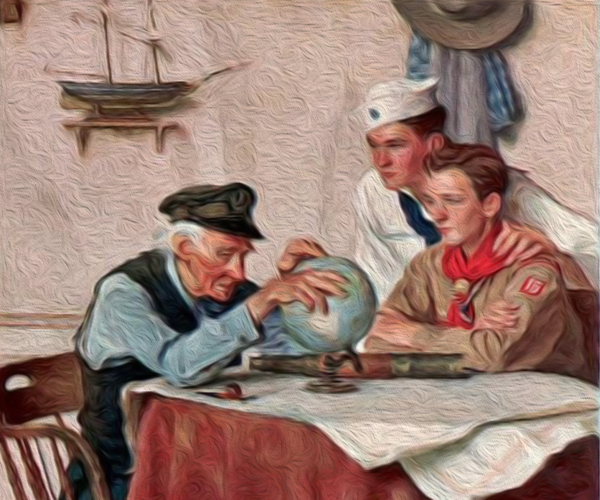
Understanding Military Terminology - Mortuary affairs
(DOD) Provides for the search for, recovery, identification, preparation, and disposition of human remains of persons for whom the Services are responsible by status and executive order. Also called MA. See also Joint Mortuary Affairs Office. Joint Publications 4-06 (Mortuary Affairs - Defense Technical Information Center)

The Old Salt’s Corner
“Warriors' Hymn”
Lord, place Thy Hand on the yoke of those who fly,
And guide them through the vast reaches of the sky.
Bring them safely through their perilous flight,
And may they ever look to Thee as their Guiding Light.
Lord, protect the sailors who sail the treacherous seas.
Calm the roiling waters that they may cruise with ease.
May they always look to Thee as their Pilot for support,
And with Thy guiding hand, bring them safely home to port.
Lord, protect the soldier with Thy mighty sword midst the battle.
Give him strength to press on despite the muskets' rattle.
Hear his fervent supplication for Thy protection from all harm,
And provide him with courage as he leans on Thy eternal arm.
Lord, shield the brave marine as he storms the dangerous strand.
Strengthen him with fortitude and provide Thy protective hand.
Surround him with Thy angels as he strives to overcome the foe.
Bring him safely through the conflict and upon him honor bestow.
Lord, bless and provide comfort to his family, for they also serve.
Until that day they are one again, give them hope and steady nerve.
Hear their prayers O' Lord, for the safe return of heroes dear,
And from their trust, hope and faith in Thee, may they never veer.
~ Robert L. Hinshaw, CMSgt, USAF, Retired

“I’m Just Sayin”
“Anything that can go wrong will go wrong.”
~ Murphy's Law

“Thought for the Day”
“More important than your obligation to follow your conscience, or at least prior to it, is your obligation to form your conscience correctly.”
~ Justice Antonin Scalia

“What I Have Learned”
“It has been said that politics is the second oldest profession. I have learned that it bears a striking resemblance to the first.”
~ Ronald Reagan

Bizarre News (we couldn’t make up stuff this good – real news story)

As if the European Union does not have crises enough, now traffic chaos in its congested capital Brussels is being blamed on... hungry mice.
EU leaders gathering for a summit on to deal with the refugee crisis and British threats to quit the bloc find a city struggling to cope with repeated closures of key road tunnels caused by crumbling concrete and years of decay.
Now the Belgian capital's regional parliament has been told that repairs are being held up because original construction plans have been destroyed - apparently eaten by rodents.
Reuters (02/18/2016)
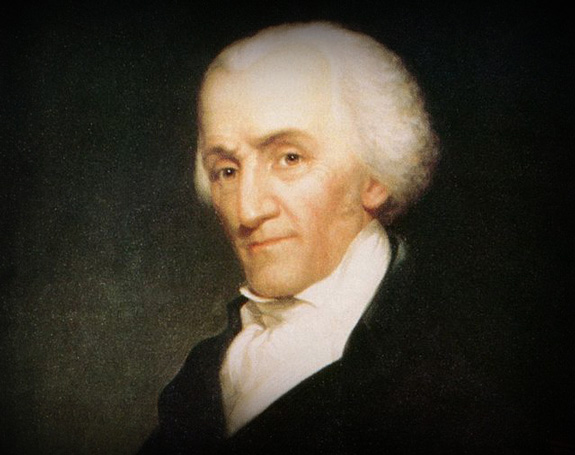
Mr. Answer Man Please Tell Us: Who Was the “Gerry” of Gerrymandering?
“A MAN OF IMMENSE WORTH”
“If every man here was a Gerry, the liberties of America would be safe against the gates of Earth and Hell.”
Elbridge Gerry was born on July 17, 1744. He was a native of Marblehead, Massachusetts, and both his parents were linked to the merchant business. Gerry took up the trade in 1762 and became an exporter of cod (a profitable fish upon which countless fortunes have been built).
In 1787, with the war long over, Gerry took part in the Constitutional Convention. The importance of his presence cannot be understated. After all, it was he who moved to include a Bill of Rights—an idea that his colleagues shot down. Five days after the proposal, the newly completed constitution was ready to be signed. Since a Bill of Rights was nowhere to be found, Gerry—along with just two other delegates who made it to the end of the Convention—withheld his signature.
Elbridge Gerry may have lost that battle, but he ultimately won the war. Thanks in part to dissenters like him, a 10-amendment Bill of Rights was formally adopted on December 15, 1791.
Had he retired from politics right then and there,Elbridge Gerry might have gone down in history as the “Father of the Bill of Rights”. Instead, he’s remembered first and foremost for another, less admirable claim to fame.
The Atlantic
• Brown Political Review.org
• Mental Floss
• Wikipedia

Where Did That Saying Come From?
“Shake a Leg:” Rouse yourself from sleep and get out of bed.
Show a leg means either “make an appearance”, usually by getting out of bed or at least showing willing by poking your leg out, or it means “hurry along”.
The second meaning isn't commonly used, nor is it old. It appears to be a confusion of the two terms “show a clean pair of heels” and “stretch your legs”. It may also have been confused with the “hurry up” version of shake a leg.
Whatever the source, that certainly isn't the original meaning of show a leg. Most commentators report that the phrase derives from the Royal Navy and that this was the order given to sailors to put a foot from their hammocks and get up.
Phrases.org UK
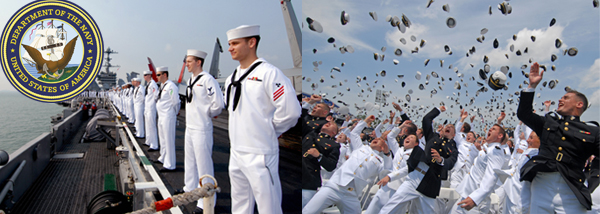
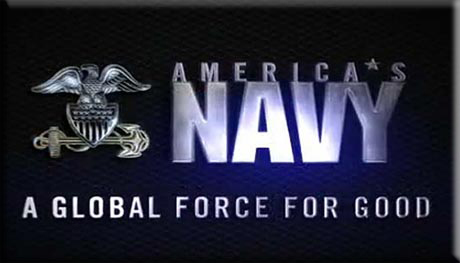
NAVSPEAK aka U.S. Navy Slang
Hot Dog: A sexually active male sailor.
Hot Racking or Hot Bunking: Submariners share racks. When one goes off, the other takes his place (three men share two racks). In the aviation community, “hot racking” refers to an individual who has not taken a shower before retiring to his bunk, usually after working a 12-hour shift on the flight deck.
HR Puff and Stuff: A nickname given to Hospital Corpsmen who regularly appear for duty in a disheveled manner with their uniform in disarray. It is a combination of a rank (Hospital Recruit, the most junior Hospital Corpsman rank) and a name that connotes the obesity and stresses placed on the uniform of just such an overweight and careless sailor. Also used as an admonishment to junior Corpsmen and Dental Techs in order to motivate them to perform regular uniform maintenance.
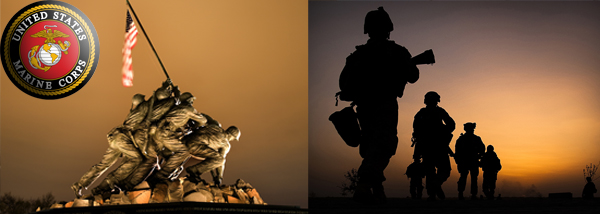

Just for you MARINE
Incentive/Individual Training or IT: Physical training used as a punishment, especially in recruit training, sometimes nicknamed “incentive torture”, “indoor tennis”, or getting “thrashed, bent, slayed or destroyed” by recruits. See also pitting & quarterdecking.
Inkstick: Pen.
Irish Pennant or IP: Any loose thread, string, or strap on a uniform or equipment that detracts from a perfect appearance.
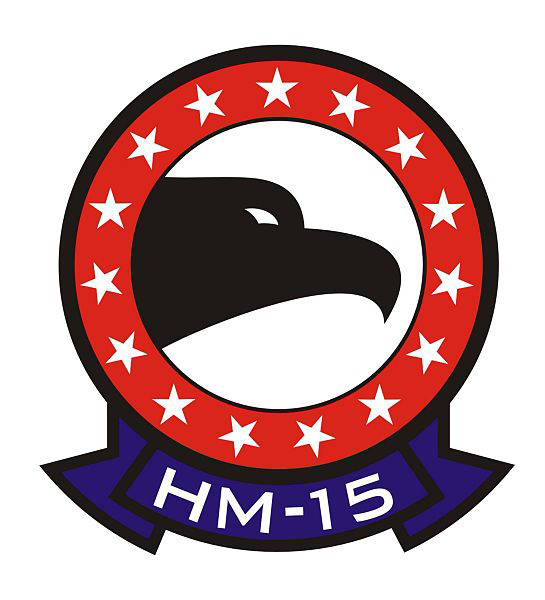
Naval Aviation Squadron Nicknames
HM-15 - Helicopter Mine Countermeasures Squadron 15: “Blackhawks”
Naval Station Norfolk, Virginia
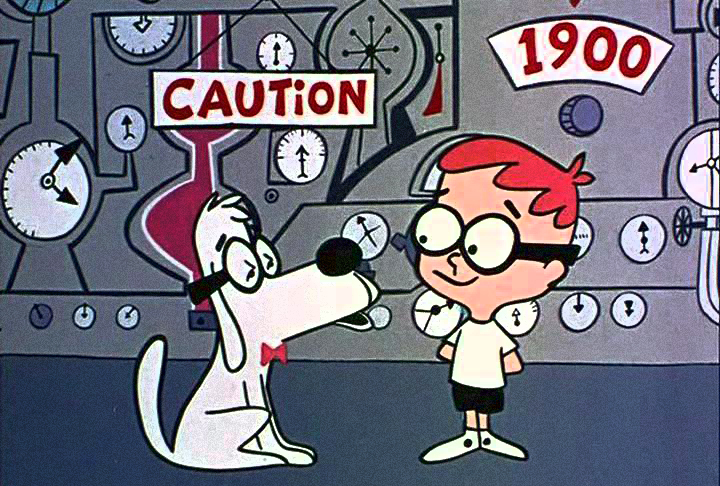
Science & Technology

Powerful crap: The quest to turn smelly sewage into sweet biodiesel
• New molecular scissors cut out lingering HIV—maybe once and for all
• Law & Disorder: Prosecutors say corrupt Silk Road agent has co-conspirators at large
ARS Technica

The Strange, Mysterious or Downright Weird
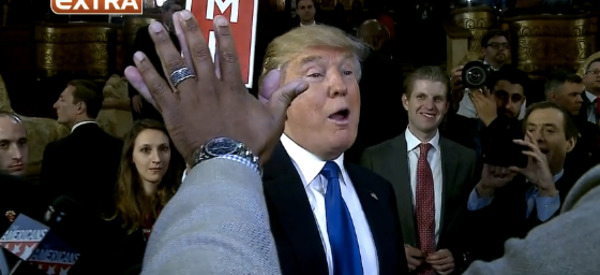
“Extra” reporter AJ Calloway and the Republican presidential front-runner compared hands directly against each other after the debate in Detroit. It was yet another moment, in addition to the actual debate, in which Trump responded to rival Marco Rubio's comment on a campaign stop that Trump's hands were on the wee side -- meaning his penis could be, too. “You know what they say about men with small hands”, Rubio cracked.
Huffington Post (03/04/2016)

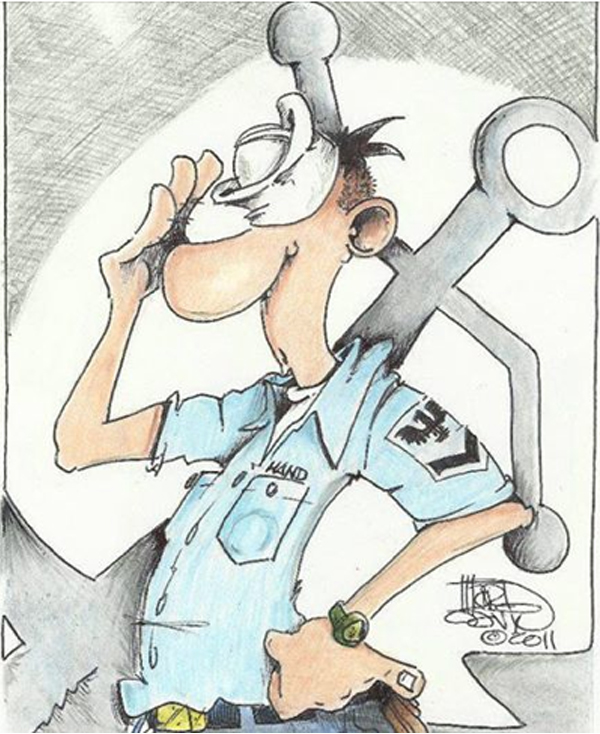
SONG FACTS
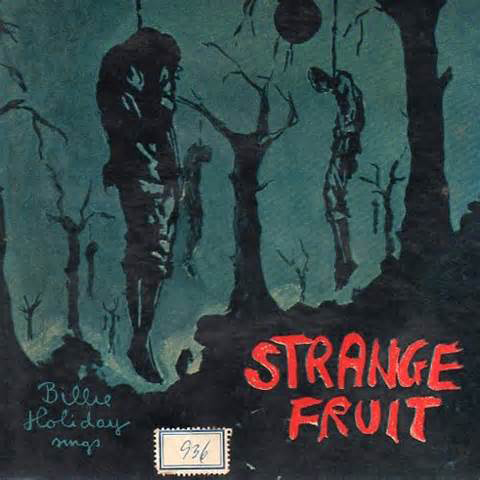
“Strange Fruit” - Billie Holiday
Album: Strange Fruit
Released 1939 
This was written by a white, Jewish schoolteacher and union activist from New York City named Abel Meeropol, who was outraged after seeing a photograph of a horrific lynching in a civil-rights magazine. The photo was a shot of 2 black men hanging from a tree after they had been lynched in Marion, Indiana on August 7, 1930. The two men are the “Strange Fruit”.
The original title was “Bitter Fruit”, and the song started as a poem Meeropol wrote. The poem was published in the January 1937 issue of a union publication called The New York Teacher. After putting music to it, the song was performed regularly at various left-wing gatherings. Meeropol's wife and friends from the local teachers' union would sing it, but it was also performed by a black vocalist named Laura Duncan, who once performed it at Madison Square Garden.
This was performed by a quartet of black singers during an antifascist fundraiser at a show put on by Robert Gordon, who was also working on the floor show at a club called Cafe Society. Billie Holiday had just quit Artie Shaw's band and was the featured attraction at the club, and Gordon brought the song to her attention and suggested she sing it. Holiday played to an integrated audience at the Cafe Society, and her version popularized the song.
Meeropol made headlines when he adopted the orphan sons of Julius and Ethel Rosenberg after their parents were executed for treason in 1953. He also wrote the lyrics to the song “The House I Live In”, which was recorded by Frank Sinatra, as well as “Beloved Comrade”, which was often sung in tributes to Franklin Roosevelt, and “Apples, Peaches, and Cherries”, which was recorded by Peggy Lee. Meeropol died in 1986.
In 1971, Meeropol said, “I wrote Strange Fruit because I hate lynching, I hate injustice, and I hate the people who perpetuate it.” Victims of lynchings were people who were marginalized from society, and most were black men. They were lynched for a variety of reasons, often because they did something to upset a prominent member of the community, who would then organize a mob to track down and kill the victim. Many times, the victims broke no laws but were lynched out of jealousy, hatred or religious difference. In America, lynchings were more common in the South, but could happen anywhere.
In her autobiography, Holiday claimed she wrote this, which was not true. Toward the end of her life, she had a lot of drug problems and made some unreliable statements.
Meeropol often had other people put his poems to music, but with this he did it himself.
Columbia Records, Holiday's label, refused to release this. She had to release it on Commodore Records, a much smaller label.
See a photo of a lynching like that one that inspired this song in Song Images. It is a disturbing photo, so click at your discretion.
This was always the last song Holiday played at her concerts. It signaled that the show was over. (Thanks to Gode Davis, director of the film American Lynching for his help with these Songfacts. You can learn more about this song in David Margolick's book Strange Fruit. For more information on lynchings, check out Gode's web site at americanlynching.com.)
In 1999, Time magazine voted this the Song of the Century. When the song first came out it was denounced by the same magazine as “A piece of musical propaganda.” (thanks, Edward Pearce - Ashford, Kent, England)
Nona Hendryx would often perform this song, adding in parts of Martin Luther King Jr.'s famous “I Have A Dream” speech. Hendryx told us: “It's a cathartic performance for me to do that song. It's like healing, and healing's what happens. And hopefully it can reach the ears and the minds and the hearts of people who are still feeling any bigotry, hatred, racism, to understand that this was a painful time in our history, in our past and in America. And that we need to move on from there.”
Billie Holliday official site / Rock & Roll Hall of Fame / Billboard / All Music / Biography / NPR / Song Facts / Wikipedia
Image: “Strange Fruit (album)” by Billie Holiday

Trivia
● Why a duck's quack doesn't echo? - No one knows.
● Mercury is the only metal that's not a solid at room temperature.
● Mercury is the planet closest in size to our moon.

A Test for People Who Know Everything
There are seven ways a baseball player can legally reach first base without getting a hit. Taking a base on balls - a walk - is one way. Name the other six.
● Answer for People Who Do Not Know Everything, or Want to Verify Their Answer Major League Baseball (MLB)
Answer to Last Week's Test
Of all vegetables, only two can live to produce on their own for several growing seasons. All other vegetables must be replanted every year. What are the two perennial vegetables?
Answer: Asparagus and rhubarb University of New Hampshire.edu

Joke of the Day
A panda walks into a bar and gobbles some beer nuts. Then he pulls out a gun, fires it in the air, and heads for the door.
“Hey!” shouts the bartender,
but the panda yells back, “I’m a panda. Google me!”
Sure enough, PANDA: “A tree-climbing mammal with distinct black-and-white coloring. Eats shoots and leaves.”
Pun of the Day
Did you hear about the guy who got hit in the head with a can of soda? He was lucky it was a soft drink.


























